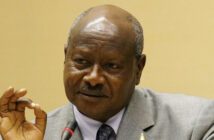The Director General of Bureau of Public Enterprises, BPE, Mr. Benjamin Dikki, has estimated that Nigeria would require about $113bn fresh funds for the development of three critical sectors of the nation’s economy, namely Oil and Gas, Power and Transport in the next six years.
Dikki made this investment projection in a paper presented at the Annual General Meeting of Manufacturers Association of Nigeria, MAN, titled: ‘Making Nigeria Work – A Dialogue between the Real Sector and the Reformer’.
A statement by Chigbo Anichebe, the Bureau’s Head, Public Communications, quoted the director general as saying specifically that to modernize the transport system, about $33 billion would be required during the period for the rehabilitation and modernization of the Nigerian railway and construction of new road networks across the country. He also estimated that Nigeria would require about $18 – $20bn of investment in the power sector, adding that the current reforms in the sector has enabled the private sector to invest in the rehabilitation of existing infrastructure and in new projects.
Dikki noted that in the same period about $60bn would be needed in Oil and Gas to unleash the potentials in the sector. According to him, since government is not in a position to finance all these investment requirements, the increasing need for improved private sector participation through investment in the various sectors of oil and gas, roads, railways, inland water ways and so on cannot be overemphasized.
He explained that it was furtherance of the need to attract the needed private sector financing that the Federal Government, through the transformation agenda, is fine tuning policies and legal and regulatory frameworks to give confidence to the private sector to invest. Dikki emphasized that the enactment of the Petroleum Industry Bill, PIB, and transport Bills being championed by the BPE into laws would be critical in the drive to attract the needed investments into the sectors.
He pointed out that it had been estimated that non-passage of the PIB into law was costing, the country an estimated $287m in accruable revenue to government from the three Production Sharing Contracts, PSC, on a monthly basis. On the impact of reform and privatization on the nation’s economy, the BPE boss said that the Bureau had so far concluded reforms in eight sectors of the economy namely Telecommunications, Power, Banking and Finance, Marine, Mining, Industrial, Steel, and Oil and Gas.
This is just as government had also concluded the privatization of 123 enterprises, including the recently concluded Power Holding Company of Nigeria, PHCN, successor companies and realized over N564.3bn. Dikki further noted that the reform of the telecommunications and banking sectors remain so far the most successful in terms of their impact on the Nigerian economy, adding that Nigeria’s tele-density has been raised from about 450,000 telephone lines in 2001 to over 134.5 million as at September 2014




